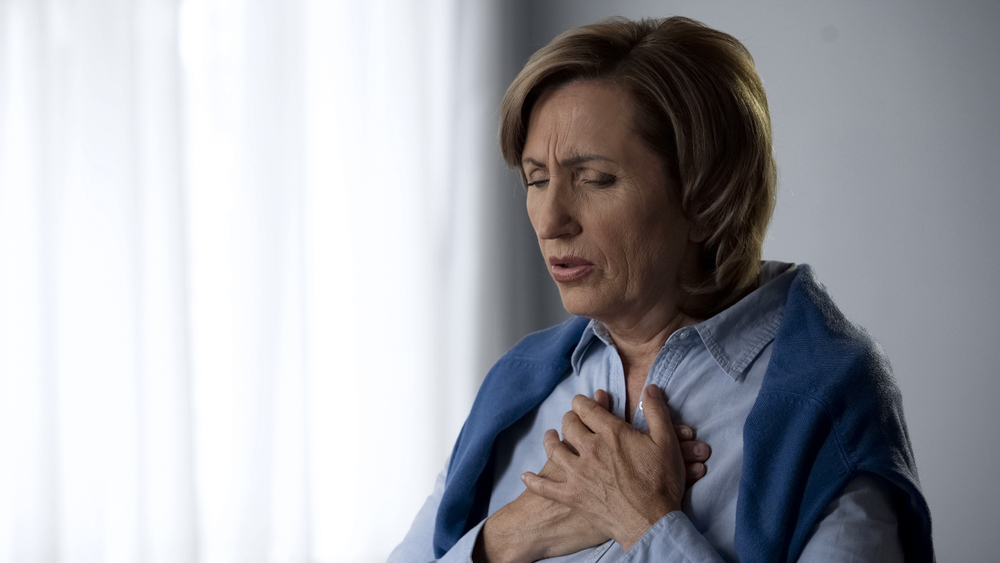When to Go to the ER for Trouble Breathing
When to Go to the ER
•
Oct 8, 2021
Reviewed by:

The feeling of not being able to breathe can be scary, leaving you to wonder when to go to the ER for trouble breathing. Is difficulty breathing a medical emergency?
If you are experiencing shortness of breath that affects your ability to maintain normal activities or you are suffering from an asthma attack and not responding to your inhaler, do not wait to seek emergency medical care. That said, if you are at all concerned about your symptoms, it is always a good idea to seek medical attention.
In this article, Complete Care will walk you through common signs that your breathing trouble warrants a visit to the ER.
What causes shortness of breath?
The severity of what causes shortness of breath can range from being acute episodes that do not cause concern to severe cases that require immediate medical attention. The key to differentiating is to consider the causes as well as the other symptoms.
For instance, if you’re pregnant, going up the stairs may cause trouble breathing –– but as soon as you rest, your breath evens out. Conversely, if you are having trouble breathing and are experiencing heart pain, you may have a blood clot and should call 911 immediately.
Other possible causes for shortness of breath include:
- Asthma
- Blood clot
- Chronic Obstructive Pulmonary Disease (COPD)
- Anxiety
- Low blood pressure
- Allergies
- Broken ribs
- Heart disease or failure
- Pregnancy
- Obesity
- Inflammation in the heart tissues
Continue reading: What to Do in an Asthma Attack
How to tell if shortness of breath is caused by anxiety
Anxiety-induced shortness of breath is different from symptoms related to other causes in that episodes typically don’t last as long, are not accompanied by other symptoms, and are not continuous. So, how long do anxiety attacks last? Anxiety attacks generally last for 10 to 30 minutes and do not accompany other symptoms outside of that period of time.
Shortness of breath symptoms
Shortness of breath is characterized by not being able to breathe deeply enough or you feel as though you are working harder than normal to get a breath in.
Other shortness of breath symptoms might include:
- Feeling winded even after you’ve been resting
- Coughing or chills
- Swollen ankles and feet
- Wheezing
- Blue fingertips or lips
- Elevated body temperature
- Lightheadedness
Most of these symptoms require urgent medical attention as they could be signs of greater conditions such as a heart attack. Especially if you find yourself asking, “why does my chest hurt when I breathe?” Seek medical attention as soon as possible.
When should you start worrying about difficulty breathing?
Trouble breathing can be caused by something like trying to walk when you’re out of shape rather than by a more serious condition. You know your body best. If you start noticing that you’re having difficulty breathing in instances where you normally don’t, such as talking, it may be cause for concern.
It’s time to visit an emergency care clinic when you start noticing symptoms such as:
- Your shortness of breath is becoming more severe
- You’re experiencing chest pain, fainting, or you feel that your heart hurts
- The level of discomfort is abnormal or different
- Bluing of your lips and fingernails
How do hospitals treat shortness of breath?
Generally, hospitals treat shortness of breath (otherwise known as respiratory distress) with breathing treatments such as albuterol nebulization, continuous positive airway pressure (CPAP0, endotracheal (ET) intubation, and supplemental oxygen. How you’ll be treated will be determined by the cause of your breathing troubles.
When you first get to the ER, if you’re in distress, your doctor will work to stabilize you before doing a complete workup to diagnosis the cause. This could include everything from checking your blood pressure to listening to your heart and running necessary tests.
Having trouble breathing? Don’t wait to visit a Complete Care ER.
Not being able to catch your breath is a frightening experience, especially when endured with other symptoms. If you are at all concerned about what you’re experiencing, don’t wait to seek medical help. Complete Care is here for you.
Our 24/7 walk-in emergency facilities are fully equipped with professional medical staff that can aid with your respiratory distress. Get effective ER treatment for trouble breathing without the typical long wait times of your typical ERs when you visit one of our locations in Colorado or Texas today.
More Helpful Articles by Complete Care:
- Broken and Severe Ankle Sprain Treatment
- What Causes High Cholesterol
- 7 of the Most Common Work-Related Injuries
- How to Treat Sunburn
- Which SPF is Better For Sun Protection?
